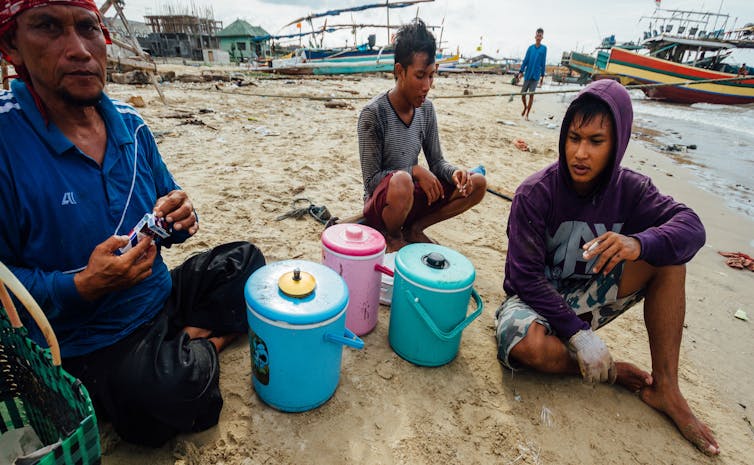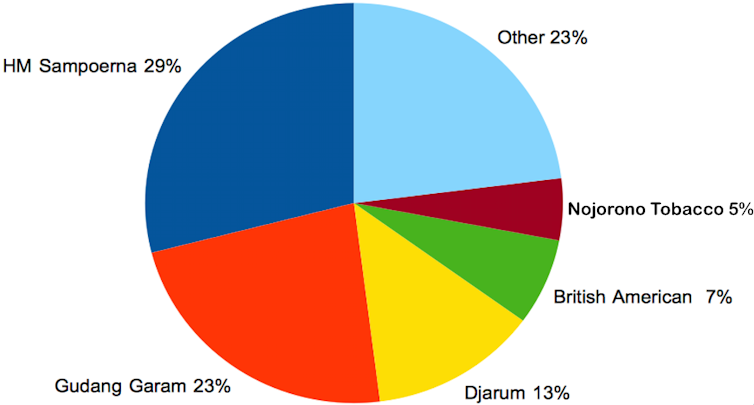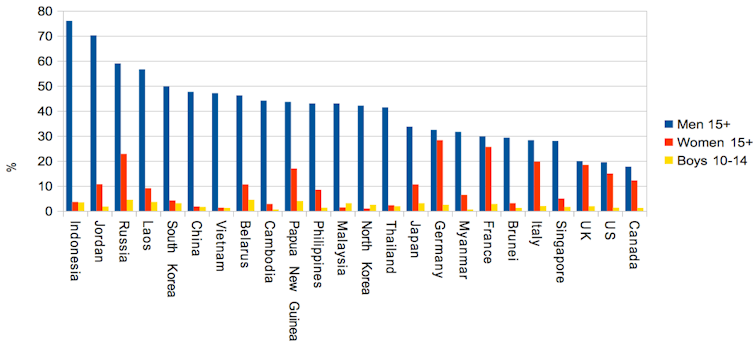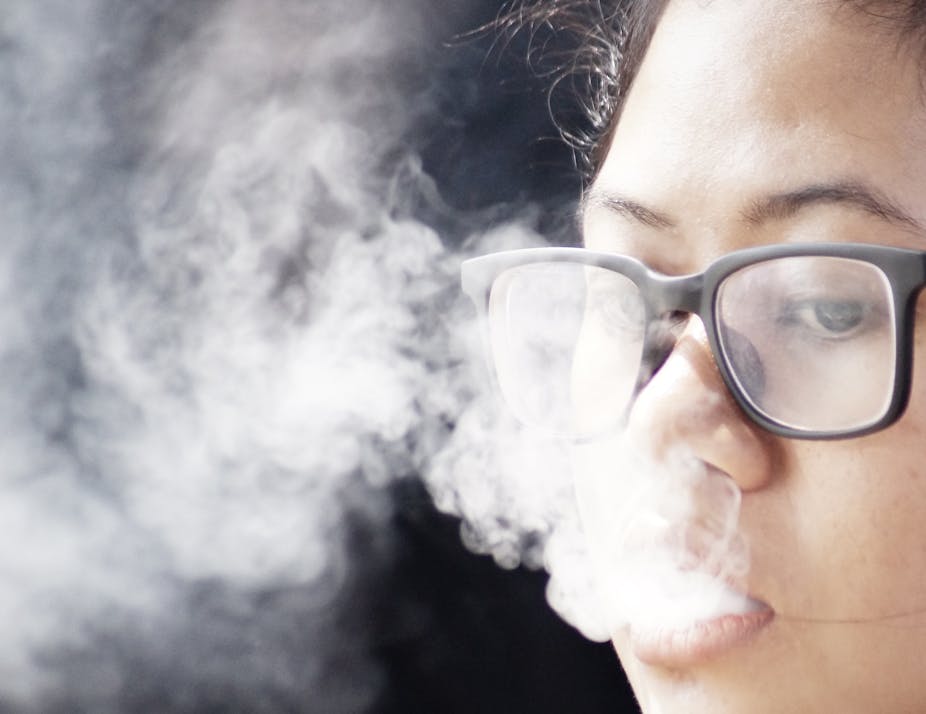With more than 260m people, Indonesia is the biggest economy in South-East Asia. The country’s young population – 37% are under the age of 20 – is one of its greatest strengths. But Indonesia’s potential and productivity are being threatened by the number of deaths associated with smoking.
Of the 10% of the world’s smokers who live in South-East Asia, half are in Indonesia. It is estimated that smoking-related diseases kill nearly 250,000 Indonesians every year.
The 76% of males aged 15+ who smoke is the highest rate in the world – and the next generation show every sign of following in their footsteps. In addition, 20% of 13-15 year olds smoke, which is the highest figure in the region. Even before the age of ten, 20% of children have tried a cigarette – and by the age of 13 it’s more like 90%.

Statistics like these explain why Indonesia is the second biggest market for tobacco in the world after China, selling more than 315 billion cigarettes a year. The country also exports vastly more cigarettes than it imports. The industry produces annual sales of over US$21 billion (£16 billion), with growth forecast at around 5% a year.
Tobacco contributes approximately 10% of all Indonesian tax revenue and employs some 2.5m workers in farming and manufacturing. Little wonder the country is planning to double tobacco production within the next decade.
Market leaders
Five players control over three quarters of the market in Indonesia. The leader is HM Sampoerna, 92.5% owned by Philip Morris International – which also makes Marlboro cigarettes. Then come a couple of Indonesian conglomerates: Gudang Garam and Djarum, both of which are known for traditional kretek or clove cigarettes. Fourth is British American Tobacco, with another Indonesian group, Nojorono Tobacco, in fifth (the source of these numbers is anti-smoking group Tobacco Free Kids).
Indonesia’s Big Five

These companies have long had significant political and financial influence in Indonesia. The government consults the industry over proposed changes to tobacco policy, but the rules don’t often seem to be tightened up.
Indonesia is the only country in Asia that has not signed and ratified the World Health Organization’s Framework Convention of Tobacco Control (FCTC) – even China is on board and making steady progress. The framework includes restrictions on the extent to which tobacco companies can lobby governments, as well as sales to children and passive smoking. It also recognises that a complete ban on tobacco marketing activities is the most effective way of reducing youth smoking uptake.
The Indonesian government believes that stricter tobacco controls could damage the industry, citing concerns for farmers and other tobacco workers. It is certainly true that the majority of tobacco workers are vulnerable and live in poverty, but this industry also supports four Indonesian conglomerates whose owners have a combined net worth of around $43 billion.
Youth targeting
While the majority of South-East Asian countries – led by Singapore, Brunei and Thailand – are making good progress towards a comprehensive ban on tobacco marketing, Indonesia remains lenient. This has earned the country the nickname, the “tobacco industry’s Disneyland”.
It feels particularly appropriate considering how many children get attracted to smoking. Individual cigarettes are sold as cheaply as $0.07 each. A pack of 20 Marlboro can be bought for $1.55, compared to around $20 in Australia. Indonesia’s laws state that cigarettes can only be sold to and consumed by adults aged 18 and above, but no penalties are imposed for retailers who sell them to youngsters.
Tobacco consumption, select countries

Indonesia is the only country in the region that still allows direct tobacco advertising. To reduce exposure to children and teenagers, advertising is restricted on TV and radio to between 9.30pm and 5am. But youngsters are still exposed through billboards, roadside stalls, music concerts, sporting events and the internet. There are shops and restaurants branded with tobacco advertising everywhere.
The tobacco companies deny that their advertising targets under-18s, but I don’t find this very convincing. The messaging uses themes that are likely to be very attractive to young people, such as humour, adventure, bravery and success. The hip young designers in this advert for the Gudang Garam’s GG Mild brand are a good example:
This advert for Sampoerna’s A Mild seems like a clarion call to the younger generation, with its mopeds, guitars and street acrobatics:
One more example is Djarum’s LA Bold advertising. Melding shadow boxing, young men in sharp suits and fawning girls, the voiceover declares: “I rule the world because I live Bold.”
The industry also positions itself as integral to society via corporate social responsibility (CSR) and sponsorship. Much of this directly involves young people. Sampoerna has developed its own educational pathway called Sampoerna School System, which distributes scholarships, supports underprivileged schools and trains teachers and principals.
Djarum sponsors Djarum Superliga Badminton and establishes sports training academies for young talents. Gudang Garam actively sponsors events and festivals which target digital natives, referring to them as “Generation G”.
In South-East Asia, Cambodia, Laos, Singapore, Thailand and Vietnam have all banned tobacco companies from using their CSR activities to attract publicity, while Brunei has banned them from such activities altogether. Indonesia has a comparable ban on tobacco CSR publicity, but such activities are still well publicised in the media and the government endorses and even participates in them.
In short, Indonesia has a big problem with tobacco. In particular, the government needs to urgently do more to protect children, since they’re not experienced enough to make well-informed choices. There needs to be a complete ban on tobacco advertising, along with stricter measures around sales – and these need rigorously enforced. Tobacco-related sponsorship and CSR must also be banned – whatever contribution they make to society is outweighed by the harm.
At a time when most countries in the region are moving in the right direction over tobacco, Indonesia urgently needs to follow suit.


